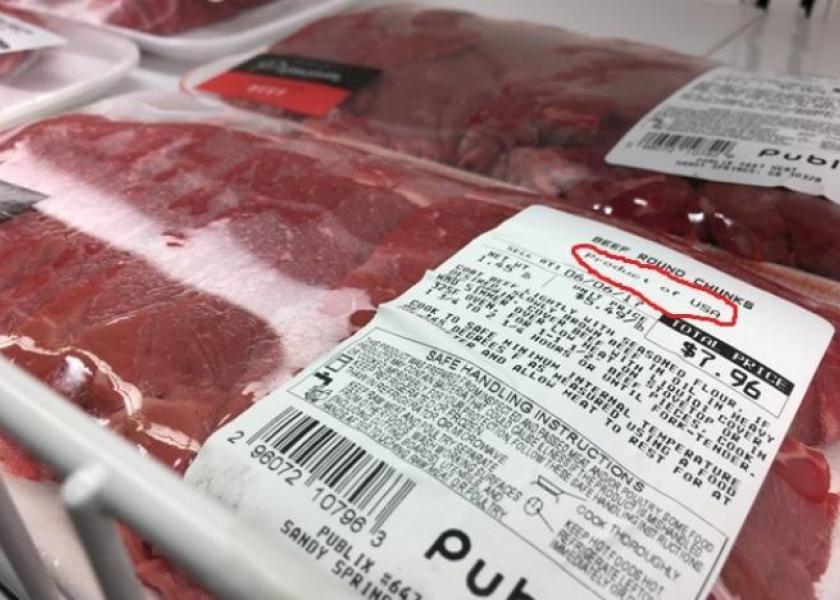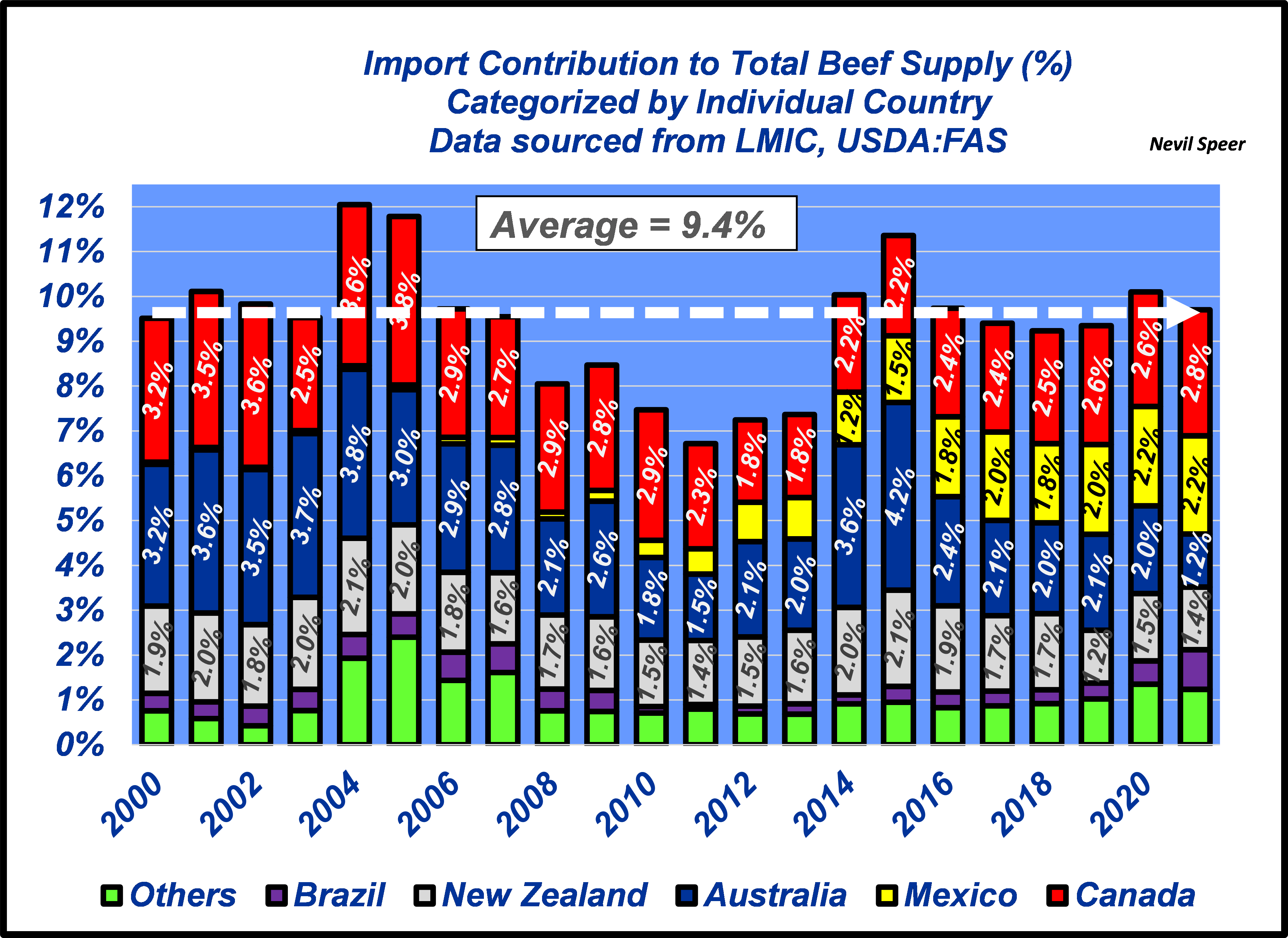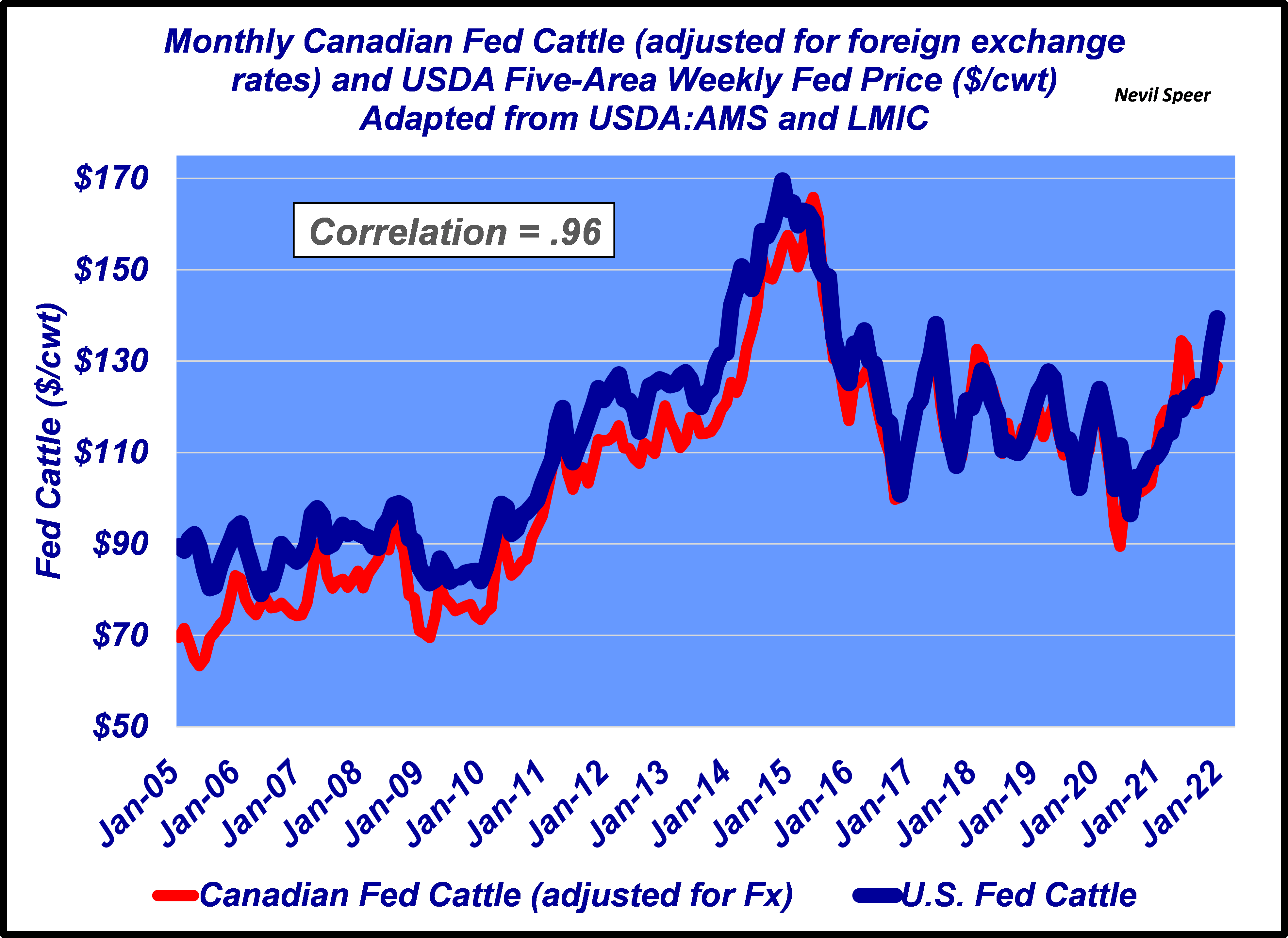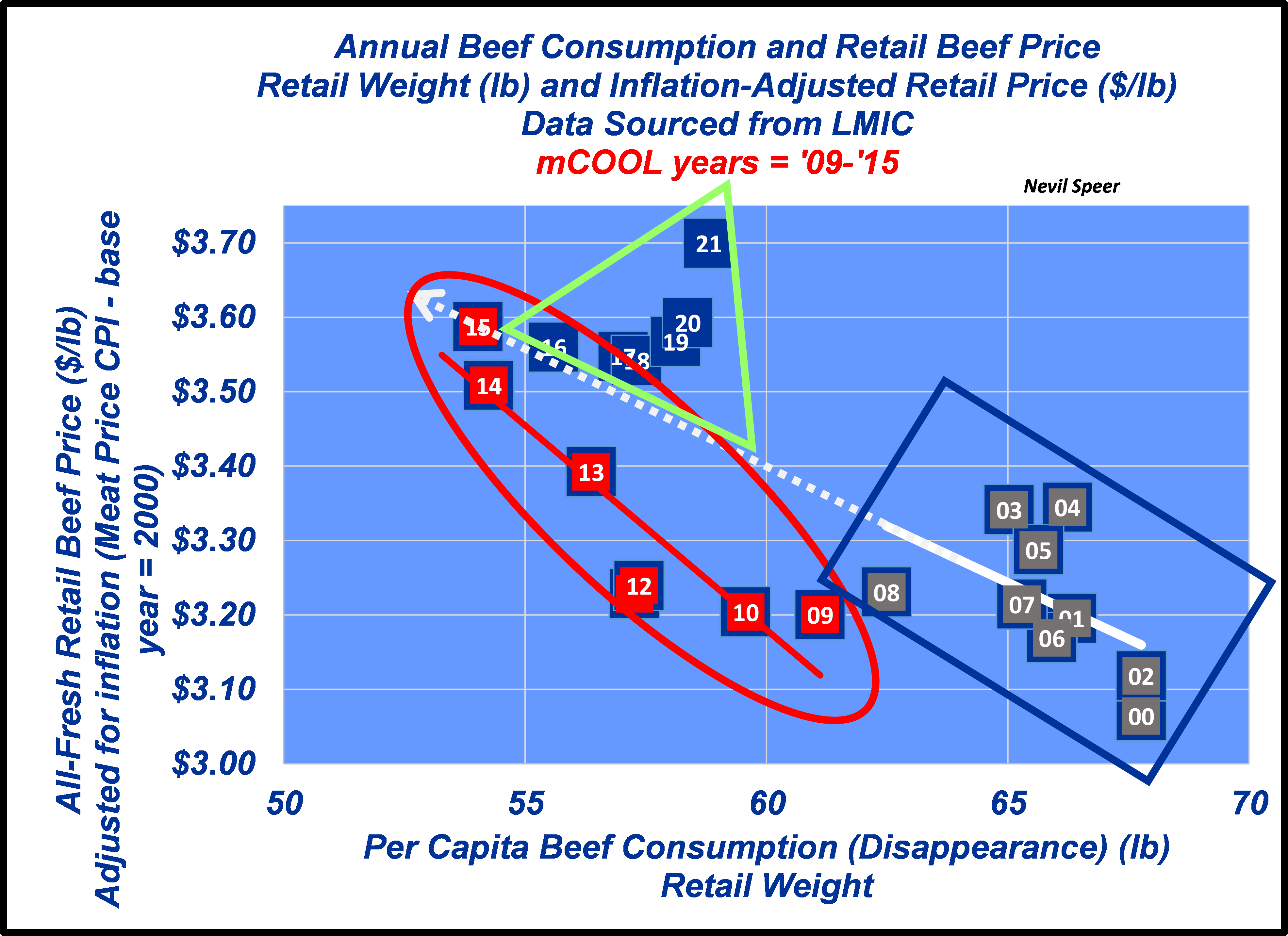Speer: COOL Zombie Walking Again

Belief perseverance is the phenomenon in which people hold on to their convictions despite overwhelming evidence to the contrary. That’s the only sensical explanation as to why we’re once again discussing mandatory country-of-origin labeling (COOL). Somehow the fervor grabbed hold of Reps. Gooden (R-TX) and Khana (D-CA). Their proposed legislation asserts: “…the United States Trade Representative, in consultation with the Secretary of Agriculture, shall determine a means of reinstating mandatory country of origin labeling for beef…”
COOL fans cling to the idea this matters to consumers. Consequently, it then strengthens market prices and boosts producers’ revenue. For example, the “ranch group” explains it like this: “American cattle producers are being unfairly displaced out of their own market. We have got to implement MCOOL immediately to give our cattle producers leverage at the meat counter and the American consumer the accurate information that they deserve. Without MCOOL, we will import ourselves out of a domestic market.” With that, let’s explore what the data says about all this.
First, imports. Claim: COOL will slow imports else “we will import ourselves out of a domestic market.” In other words, advocates promote COOL as an active, non-tariff trade barrier – but that’s the very reason it was struck down by WTO in the first place. Moreover, in an ironic twist, those hopes went unfulfilled the first time around. Rather, as a percentage of total beef supply, beef imports topped their highest levels in a decade (’14 and ’15) – while COOL was in effect. Since its repeal, imports have leveled off at 9-10% of total beef supply – largely in-line with the longer-run average.

Second, producer leverage. Claim: COOL will immediately “give our cattle producers leverage” in the market place. That’s a popular argument because prices reached record highs during COOL. But that didn’t happen because of COOL else Canadian prices wouldn’t have also been surging. In other words, the law made no difference to buyers and sellers – thus providing zero marginal benefit for U.S. producers.

Third, and most important, consumer demand. Claim: COOL provides “…the American consumer the accurate information that they deserve.” But do they care? USDA’s own commissioned research (Drs. Tonsor, Schroeder and Parcell) noted there was , “…no evidence that consumer demand for beef or pork has increased because of MCOOL. Thus, our economic analysis finds no measurable benefits to consumers as a result of the MCOOL rules.”
The beef industry enjoyed the benefits of new pricing power during the COOL years (’09-’15) – much of that largely attributable to the industry’s previous work emphasizing quality and promotion. However, specific to beef demand, the price / quantity relationship during COOL was weaker compared to the trendline established the nine years prior (’00-’08). (For more detailed discussion, see Dr. Tonsor’s detailed work regarding COOL and demand.) Since COOL was repealed, beef demand has jumped to new highs. Seemingly, consumers have responded to what really matters in the marketplace: continuous improvement in beef quality and consistency.

We’ve run this gauntlet once before. But for whatever reason, the COOL zombie just keeps coming back. Undoubtedly, some will argue that this time is different. But that’s a weak argument given the track record. The industry is best served by killing it once and for all.
Nevil Speer is an independent consultant based in Bowling Green, KY. The views and opinions expressed herein do not reflect, nor are associated with in any manner, any client or business relationship. He can be reached at nevil.speer@turkeytrack.biz.







